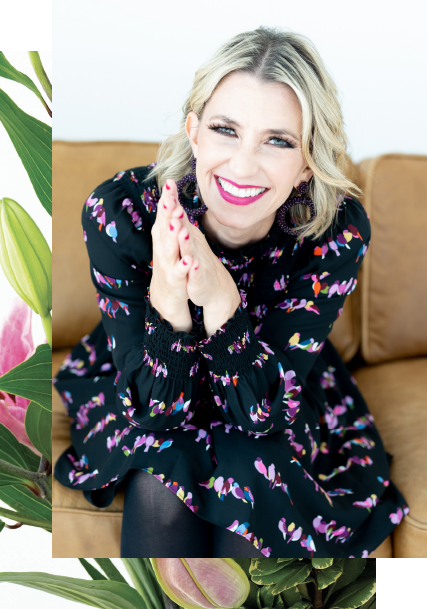Homes are our living partners, and they hold enormous ability to influence ample opportunities and positive possibilities on our behalf. Yet, we often dismiss a house as mere architecture and diminish its power to sway those desired transformations.
One of the simplest ways to persuade this environmental disposition is to live with what we love. And clutter is not love. As a Feng Shui practitioner, I know the internal fight to be right about our clutter – that it’s worth something or it might come in handy later. But the inconvenient truth is clutter costs us precious energy – physically, psychologically and emotionally.
The remedy is simple: Clean (and declutter) our surroundings intentionally.
How?
Strategy one: Figure out where your house plays hardball most by getting honest about what creates constant agitation, and start there. This could be chronic piles on the floor, a messy desk, a cluttered garage, or those countertops that seem to be paper magnets.
Pay attention, too, to anything you wouldn’t buy again today. Notice what you cling to out of guilt and fear – you know, the what ifs. Be objective about you keep because of its perceived value. And be mindful about what you hold onto because deep down, you worry life won’t get better. “Better” here doesn’t exclusively mean nicer things either; instead, “better” implies resources money can’t buy – more energy, time and peace of mind.
Prefer more prescriptive guidance?
Strategy two: Our attention is often tugged to a certain hot spot or clutter zone that (from a Feng Shui perspective) usually corresponds to an area of our life where we would welcome help.
Here’s what I mean…
The front door is a first impression – and in shui speak, it is where opportunity finds us. When clutter lives near the entry of our home, we may experience unnecessary obstacles in life that prevent us from moving forward with ease or confidence.
Hallways and stairways are like life force arteries running through the home. If clutter “clogs” them, it can affect the health of opportunities flowing into our lives.
A bedroom reveals how we care for ourselves in relation to everything (and everyone) else. A bedroom should be devoted to self-care, boundaries and intimacy – and when that trinity is compromised by clutter, it sends the message we don’t prioritize ourselves.
The living room is a gathering spot of all the personalities within a home. However, if clutter is in the mix, disagreements have a plucky tendency to show up in conversations and fray connections with our loved ones. And if no one uses this space because of clutter, it hints family members might be drifting apart.
The kitchen is synonymous with wealth in Feng Shui. Chaos and disarray in the kitchen disrupt the flow of abundance, well-being and prosperity in our lives.
Closets speak to our authenticity, so clutter here snitches that we’re hiding parts of ourselves from the world.
As someone who has this clutter conversation with clients weekly, I know clearing clutter feels hard. It also requires (at least) twice as much effort to maintain our own peace and productivity with it around – which means anything we aspire to accomplish is immediately contaminated by its presence.
So, I’ve saved the best suggestion for last…
Strategy three: Keep clutter from making its way into your home. Next time you’re about to make a purchase, ask yourself…
- Does this serve an immediate purpose in my life / our home, or is this an “empty calorie” purchase?
- Will this item be used and / or needed consistently? (‘Consistently’ can be once a year – like holiday décor – but longer than that, and make sure the impulse isn’t well-disguised fear or a self-soothing response.)
- What kind of maintenance or energy will this require? This is probably the most important question we can ask ourselves before hitting the cash wrap or pushing the “BUY NOW” button – because if we don’t have the bandwidth to take care of something, it is already clutter before its arrival!
- Am I willing to let something else go to make room (time in your schedule / space in your house / energy for the day) for those needs?
Every single thing we own or house is either flourishing or diminishing our happiness. By editing out what we no longer use, need, or love — and prioritizing what deserves a place in our lives — we feel more relaxed, hopeful, and dare I say, empowered? And walking into our day empowered changes EVERYTHING. So, if you’re ready for a little practical magic, push up those sleeves and get to work reclaiming your home and revising your life!


